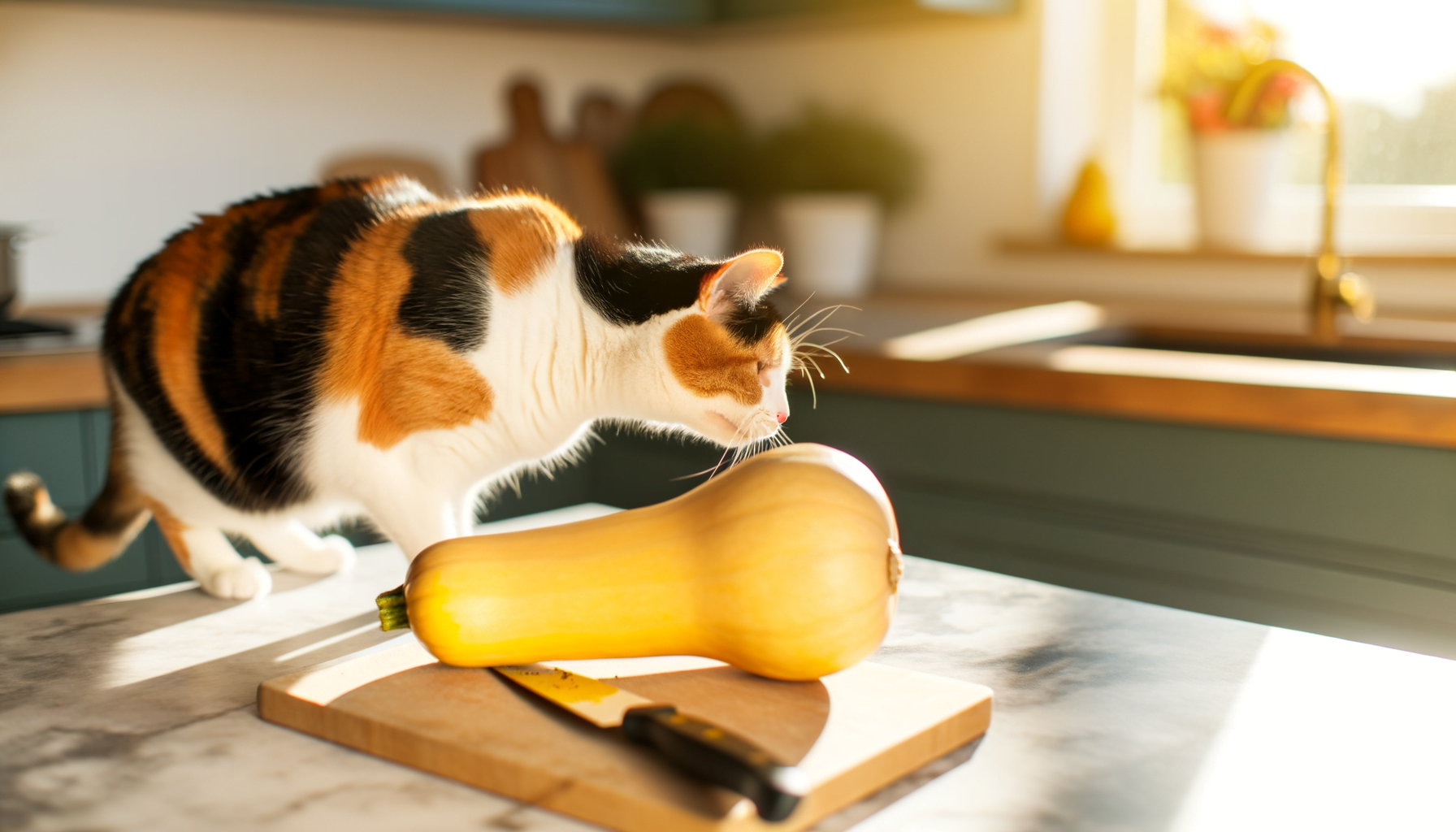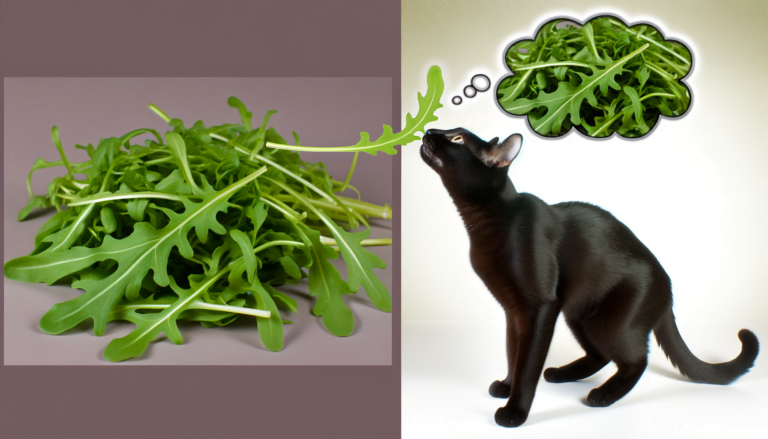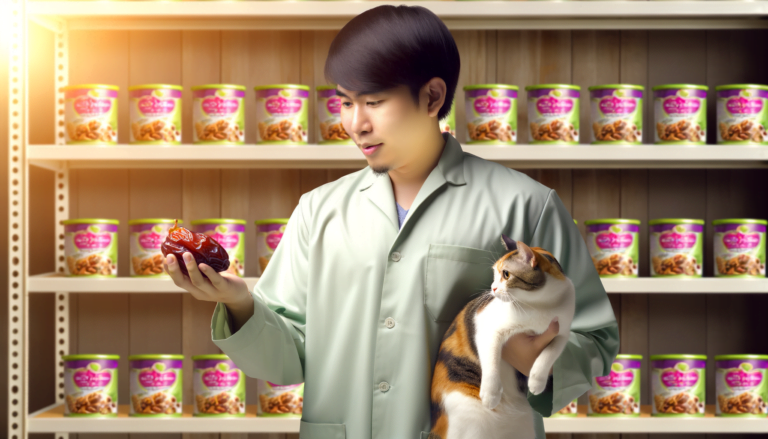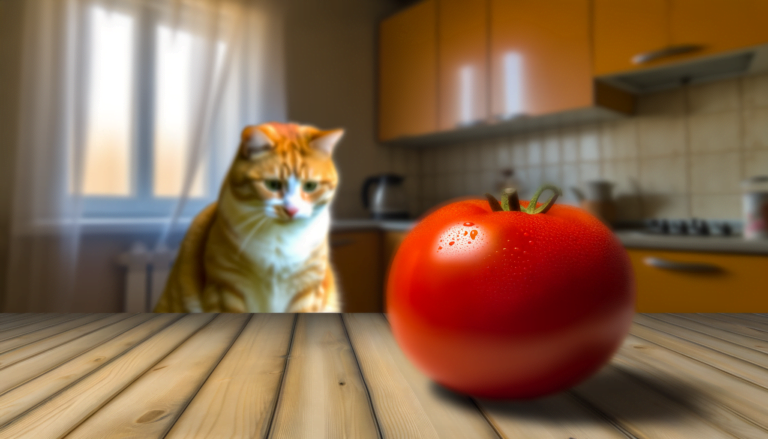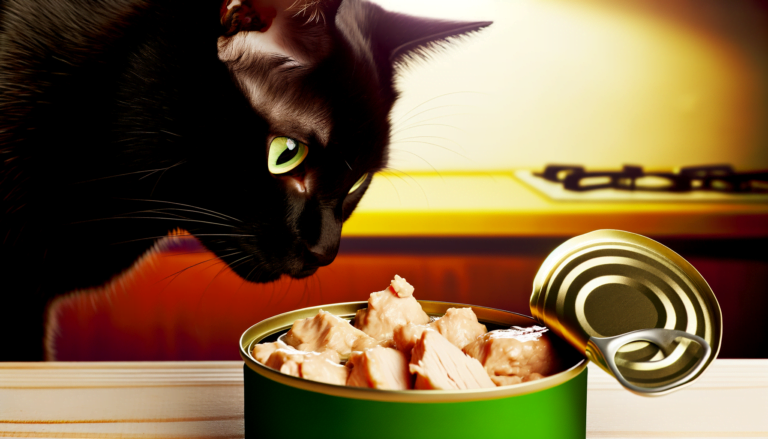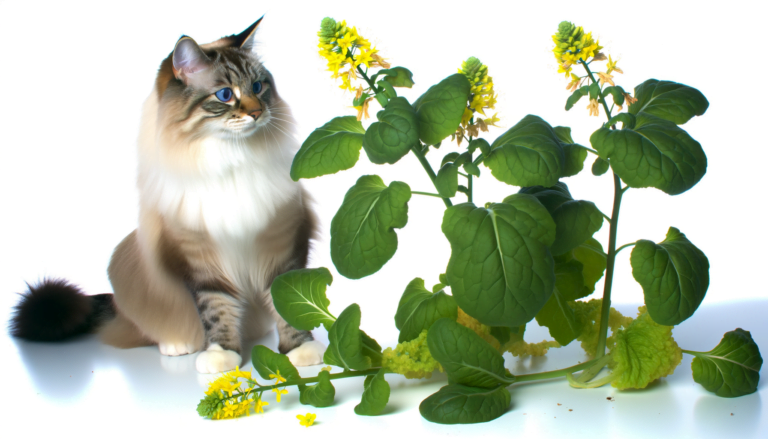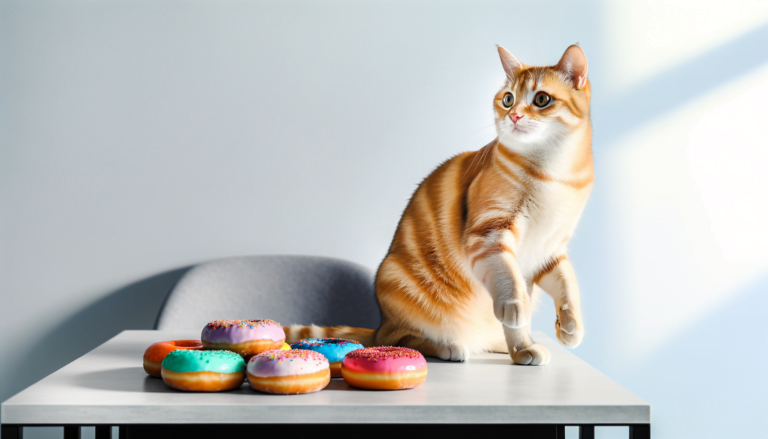Decoding Feline Diets: Can Cats Safely Munch on Squash?
Cats can absolutely eat squash. This vegetable is a healthy, non-toxic food for cats. It’s packed with beneficial nutrients like vitamins A and C, which can contribute to a cat’s overall wellbeing. However, always remember to properly cook it as raw squash might be difficult for cats to digest. Also, consider introducing the squash gradually into your cat’s diet to prevent any potential digestive issues or unexpected food reactions. Lastly, while squash is positive for your cat’s health, it should not replace a cat’s primary, protein-rich diet but can be used as an occasional addition or treat.
Health Benefits and Risks of Squash for Cats
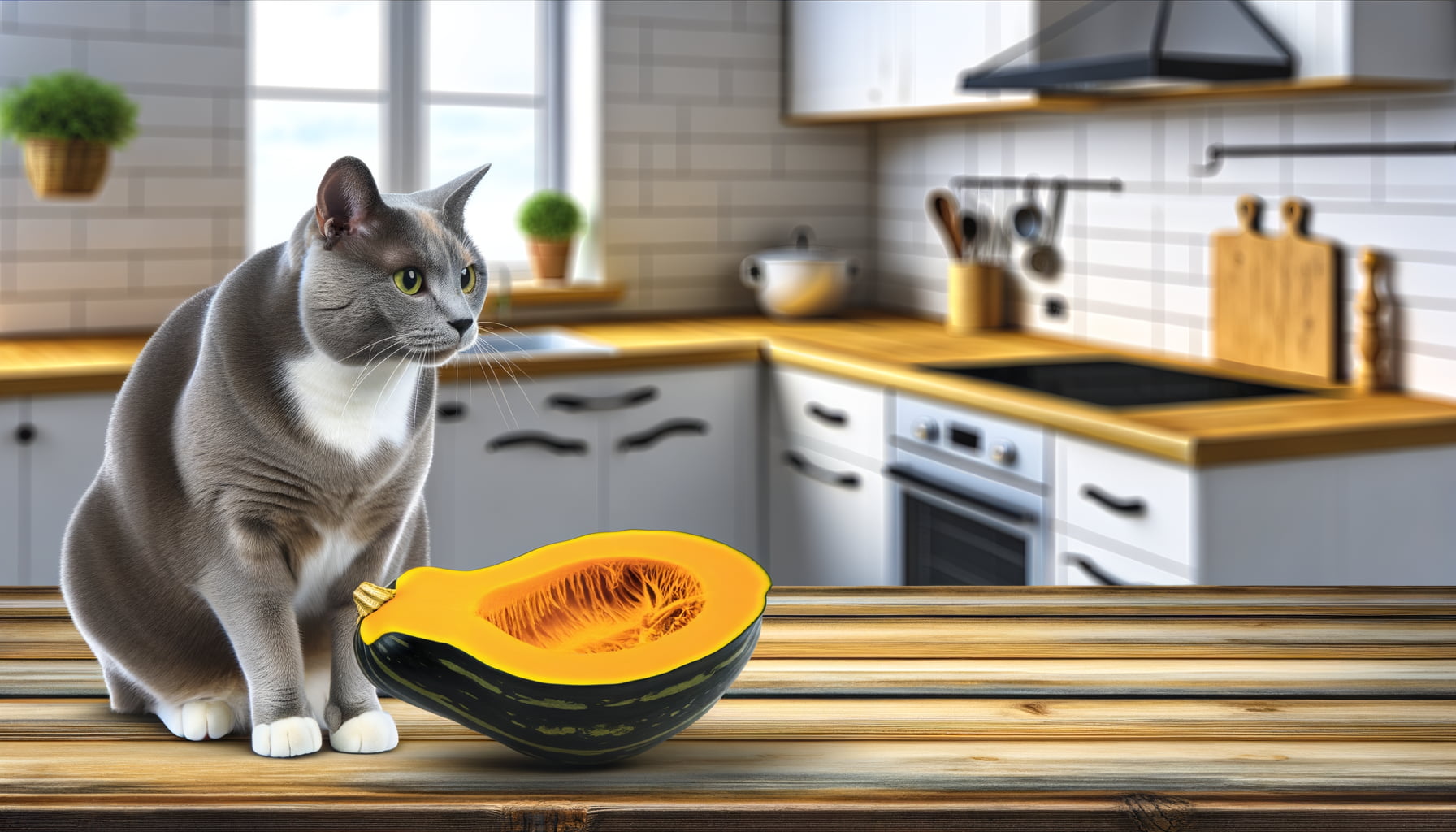
Cats, being obligate carnivores, primarily require a diet rich in animal protein. However, introducing other food types, like squash, into a feline diet can contribute some health benefits. Squash, rich in vitamin A and C, fiber, and antioxidants, can help enhance a cat’s immune system and improve digestion.
However, squash might also impose some risks. Cats’ digestive systems are not designed to break down plant matter, like squash, efficiently as they would with meat. Consuming large chunks or a substantial amount of squash might lead to stomach upset or indigestion. Also, any seeds or skin of the squash can pose a risk of choking or intestinal blockage if not properly removed.
Therefore, while squash can be a safe and beneficial supplement to a cat’s diet when prepared correctly, it should not replace the protein-rich foods that cats mainly require for their health and well-being. As always, introducing any new food into your cat’s diet should be done gradually and under the advice of a reliable veterinarian.
Specific Kinds of Squash and Their Effect on Cats
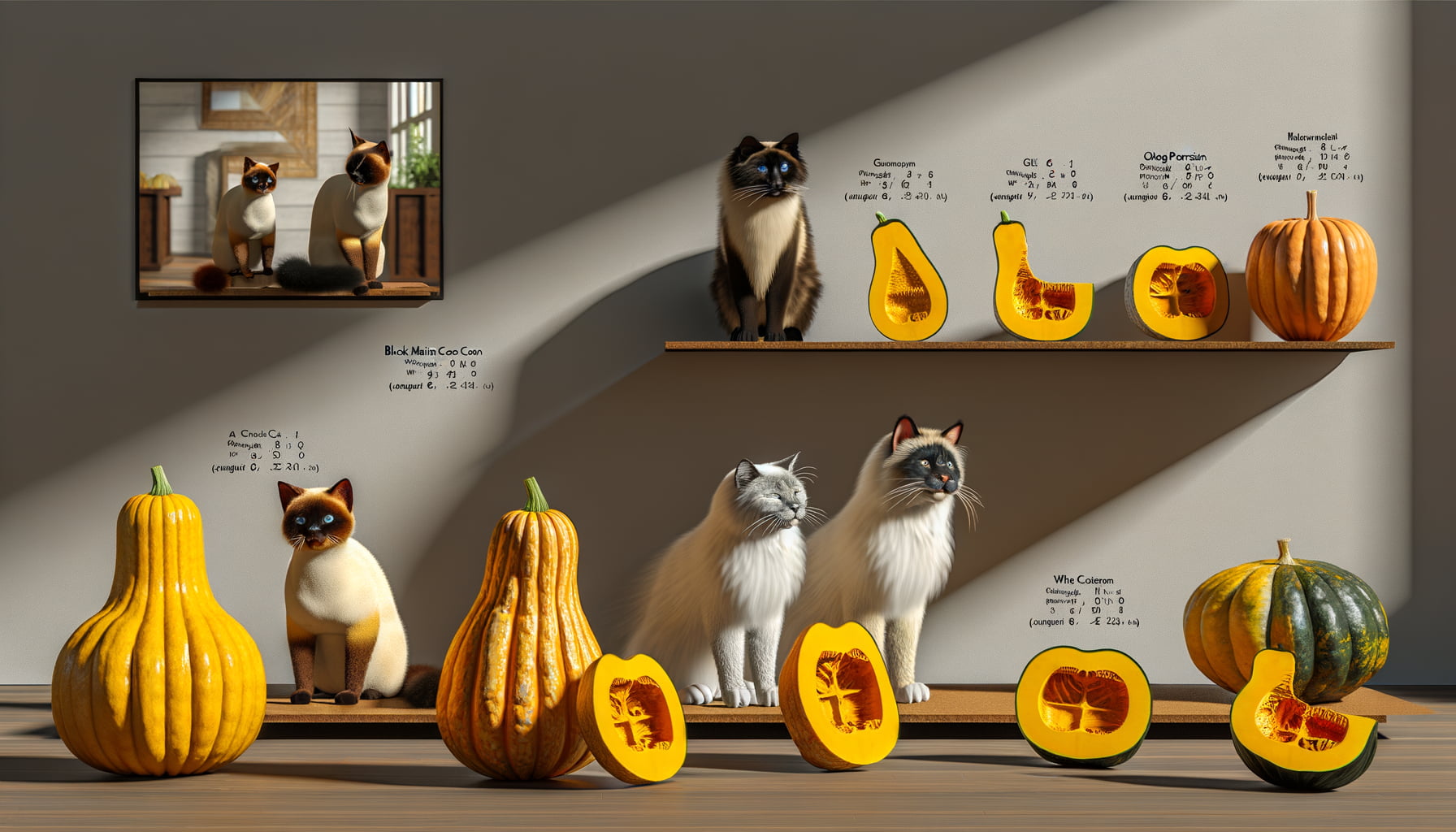
When exploring the diet of felines, considering the varieties of squash proves insightful due to their varied effects on cats. Butternut squash, acknowledged for its rich nutritional content, can be beneficial to cats when served adequately. It’s packed with essential vitamins and fiber; however, keep portions small and infrequent, as cats maintain an obligate carnivorous nature.
Zucchini, another member of the squash family, also holds potential benefits. A low-calorie option, it adds water content to your cat’s diet supporting hydration. However, caution is necessary to avoid overfeeding, which could contribute to digestive complications.
Spaghetti squash, while intriguing with its string-like flesh, is a lesser-known option for cat consumption. Despite its unique texture, it’s still a safe occasional treat for felines when prepared properly. The take-home message lies in understanding that while these squashes can supplement the diet of our feline companions, they can’t replace the nutrients cats derive from meat and should not be used as a staple dietary element.
Preparing Squash for Your Cat: Dos and Don’ts
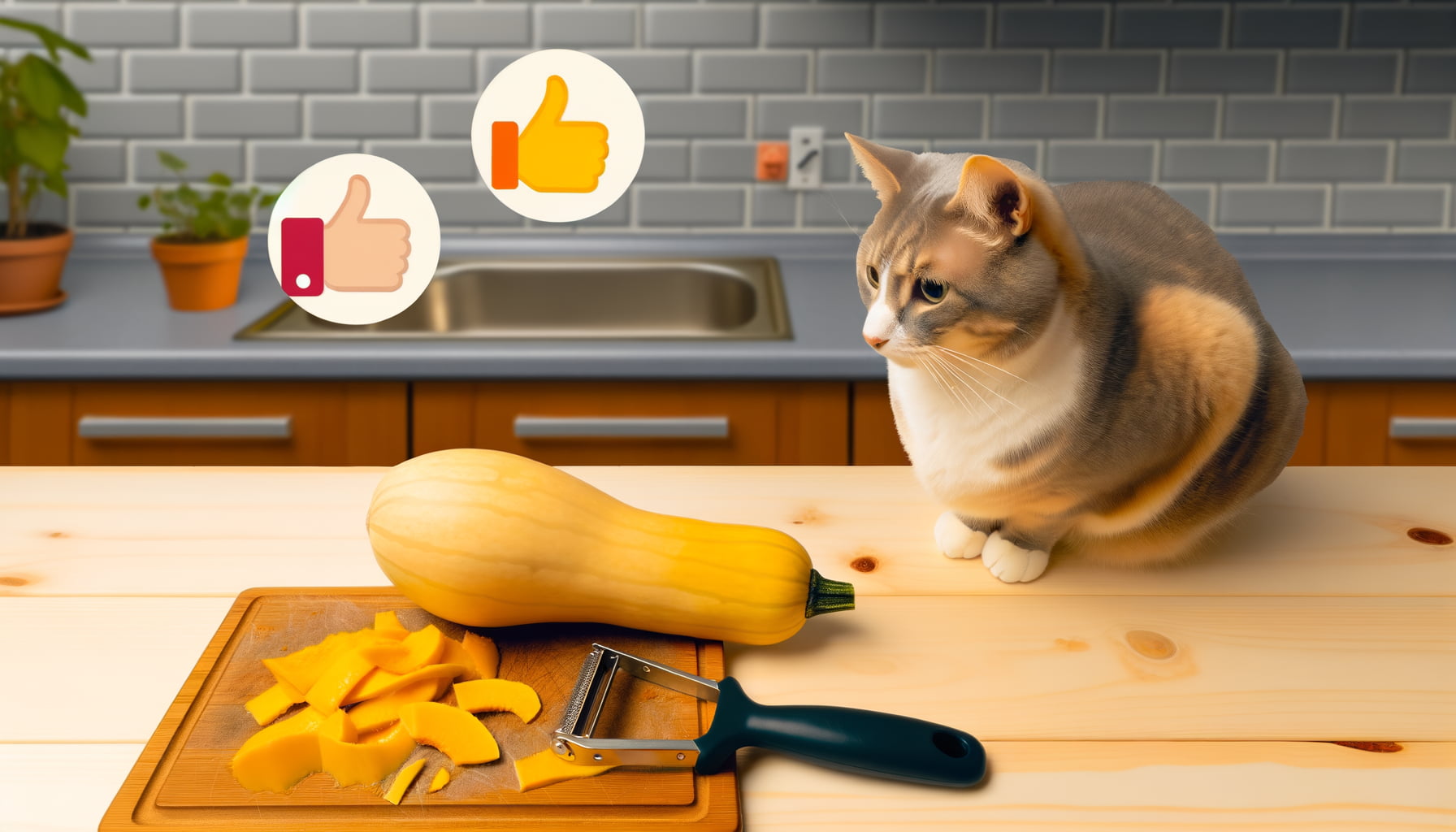
As the culinary journey progresses, let’s turn our attention to the practical steps in preparing squash for our felines. Contrary to popular belief, it’s not just about slicing up some supermarket-bought squash and serving it up. One essential element is to cook the squash thoroughly before feeding it to your cat – eating raw squash can be tough on a tiny feline’s digestive system.
Additionally, remember it’s a ‘less is more’ scenario when considering portion sizes. A small amount goes a long way with cats. To put it plainly, only a spoonful or less of squash is generally enough for one meal. On the other hand, it’s critical that you don’t overload them with squash or make it a regular diet staple. For some cats, too much squash might lead to stomach trouble.
Lastly, the use of seasonings on squash is a definite no-no. Cats lack certain enzymes to process many human food adjuncts like garlic or onions, both of which are toxic to cats. Avoid butter too, as cats are often lactose intolerant. Therefore, always serve squash plainly cooked – it’s safer and just as satisfying for your furry companion.
Understanding a Cat’s Nutritional Needs
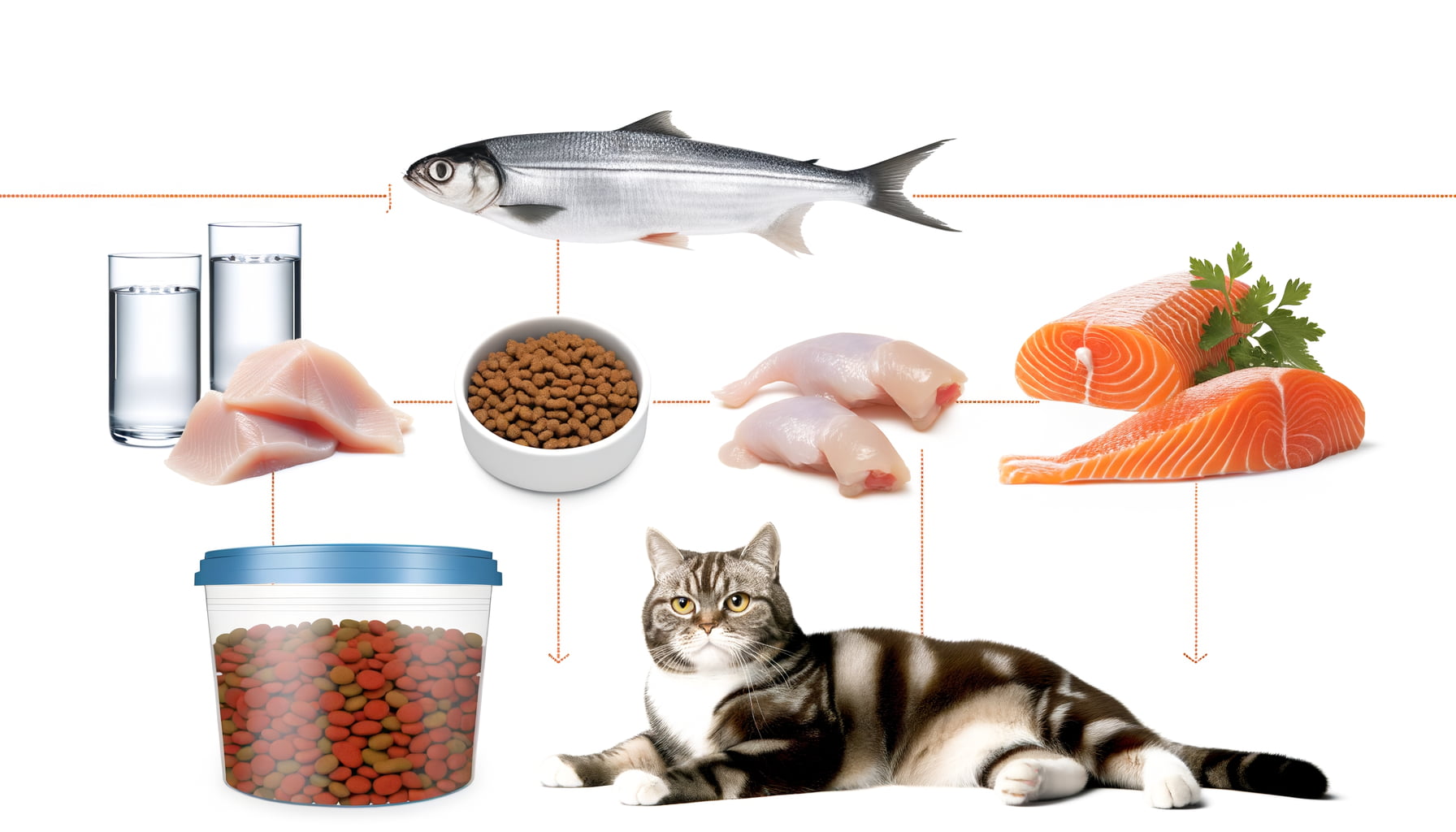
Cats are renowned as obligate carnivores, meaning their bodies require specific nutrients found predominantly in animal tissue. They thrive on a high-protein diet, with a particular need for taurine, an indispensable amino acid for their well-being. Without it, cats may be prone to serious health issues such as cardiovascular disease and blindness.
Their nutritional requirements also include vitamins A and D and arachidonic acid, elements found in a meat-based diet. While humans and dogs can convert certain precursors into these substances, cats cannot. With their unconventional metabolic wiring, cats are ill-equipped to fully extract needed nutrients from plant-based materials, like squash. Nevertheless, small portions might be permissible depending on how it’s prepared.
Despite their carnivorous nature, the utilization of vegetation, like squash, as a minor supplement in a cat’s diet is a topic of ongoing debate among cat owners and experts. However, it should be noted that a cat’s nutritional regimen should not be changed without consulting a vet. While a chunk of squash, in theory, might provide hydrating effects and introduce beneficial fiber, the measure of these benefits and the risk-to-benefit ratio needs thorough understanding.
Conclusion
Decoding feline diets can be a complex task, especially when considering unconventional options like squash. While cats may enjoy a nibble of this vegetable, it is important to prioritize their safety and well-being above all else. Consulting with a veterinarian before introducing any new food into your cat’s diet is always the best course of action.
Ultimately, ensuring that your feline friend has a balanced and nutritious diet tailored to their specific needs is key. While squash may provide some benefits, it is crucial to approach it with caution and always prioritize your cat’s health above all else.
